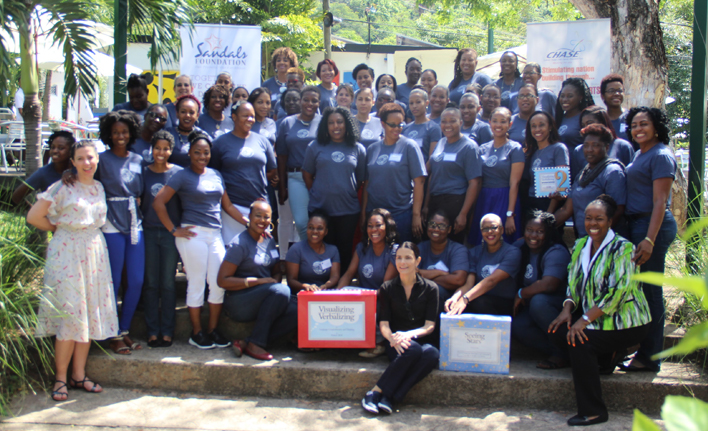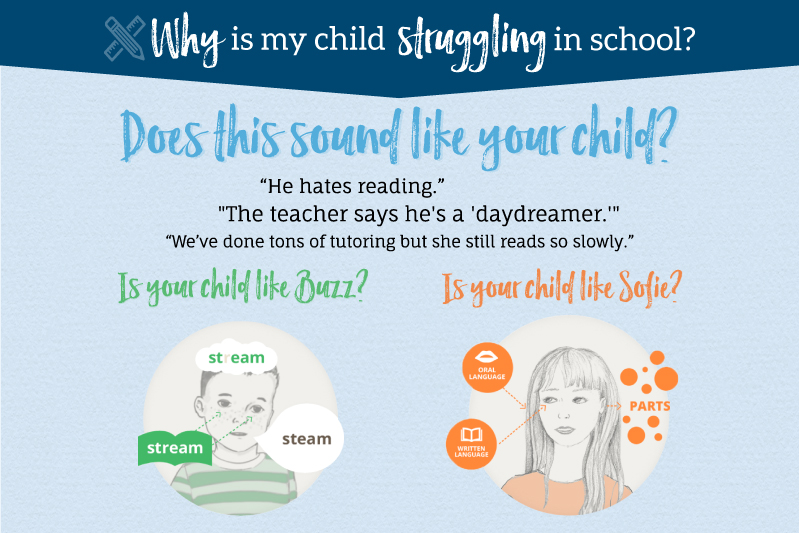
Teachers always encourage students to read as much as they can over summer break. But if your last parent-teacher conference came with a specific suggestion—to get reading support during the summer months—you are likely considering one of the following:
1. Reading more with your child, teaching him/her to read yourself
2. Having a “reading specialist” tutor your child 1-2 times per week
3. Joining a library reading challenge for extra practice
4. Signing your child up for a reading camp
5. Doing nothing—perhaps reading has not yet “clicked” for your child
Although any of these options can seem like a good idea, they may not be the right solution for improving your child’s reading. Rest assured that many parents of primary grade students share the same dilemma. With the precious summer months and hopes for a better school year at stake, it’s important to make the right plan for summer learning.
What your child needs for success
Reading is an integration of processing skills: word attack, sight word recognition, contextual fluency, oral vocabulary, and comprehension. For many students, a cause of reading difficulties is weak symbol imagery—the ability to visualize letters in your mind’s eye. This connection of imagery and language is necessary for sounding out new words, as well as quickly recognizing letters and common words. This difficulty can prevent students from accessing school curriculum as quickly and accurately as their peers do. Students who read fluently, and are able to self-correct their errors, have strong symbol imagery. Learn more about symbol imagery and solutions for reading difficulties here.
Traditional reading camps and tutoring programs focus on content-area instruction, spelling and reading rules, or may touch on a variety of reading strategies. While these activities have value, they will not address and improve the underlying cause of a reading difficulty—stretching the issue out into the next school year.
And, unfortunately, practice does not “make perfect” for students who struggle with reading. While reading with your child and going to the library are excellent activities for all families, neither will improve reading if there is an unaddressed weakness.
Enough help to make a difference
Even great learning programs can be ineffective if they are not conducted with enough intensity to actually change learning. If a child is behind peers in reading skills, intervention has to decrease the learning gap by increasing the rate of learning. To increase the rate of learning, students need the right diagnosis and the right instruction, in the right environment. At our learning centers, our daily, intensive intervention commonly results in years of gain in just a few weeks of instruction.
Learn more about intensive instruction, including a video featuring a parent’s perspective, here.
Beware of the “summer slide”
Questioning the teacher’s advice about summer help altogether? You’re not alone. Parents may wonder if their child’s reading is truly unsatisfactory as compared to peers. Or they may wonder if it would be better take a total break from schoolwork.
When a teacher has indicated a child could benefit from reading help, she has likely considered these factors, and more. For many students, three months away from academics can lead to measurable learning loss in skills—which, of course, is not what any family wants to be faced with at the start of the upcoming school year. The summer slide effect hits struggling readers harder than their peers; so if your teacher has identified an issue, your child may be at risk of starting school even further behind.
The first step of a great plan
If you or your child’s teacher are seeing signs of a possible reading difficulty, or you are concerned that reading hasn’t “kicked in,” you need to find out why and that there is help. A learning ability evaluation uncovers the strengths and weaknesses that affect learning. At our learning centers, we identify the strengths and weaknesses that may be affecting school and make recommendations for an individualized instruction plan.
A few weeks at our learning center can make reading a strength before next year. Your child can be a better reader in time for school and have plenty of time for a great summer break. Go here for a list of our locations, including our seasonal, summer-time learning clinics. We look forward to helping you plan for summer learning that will make a difference for your child. Contact us 800-300-1818.



















